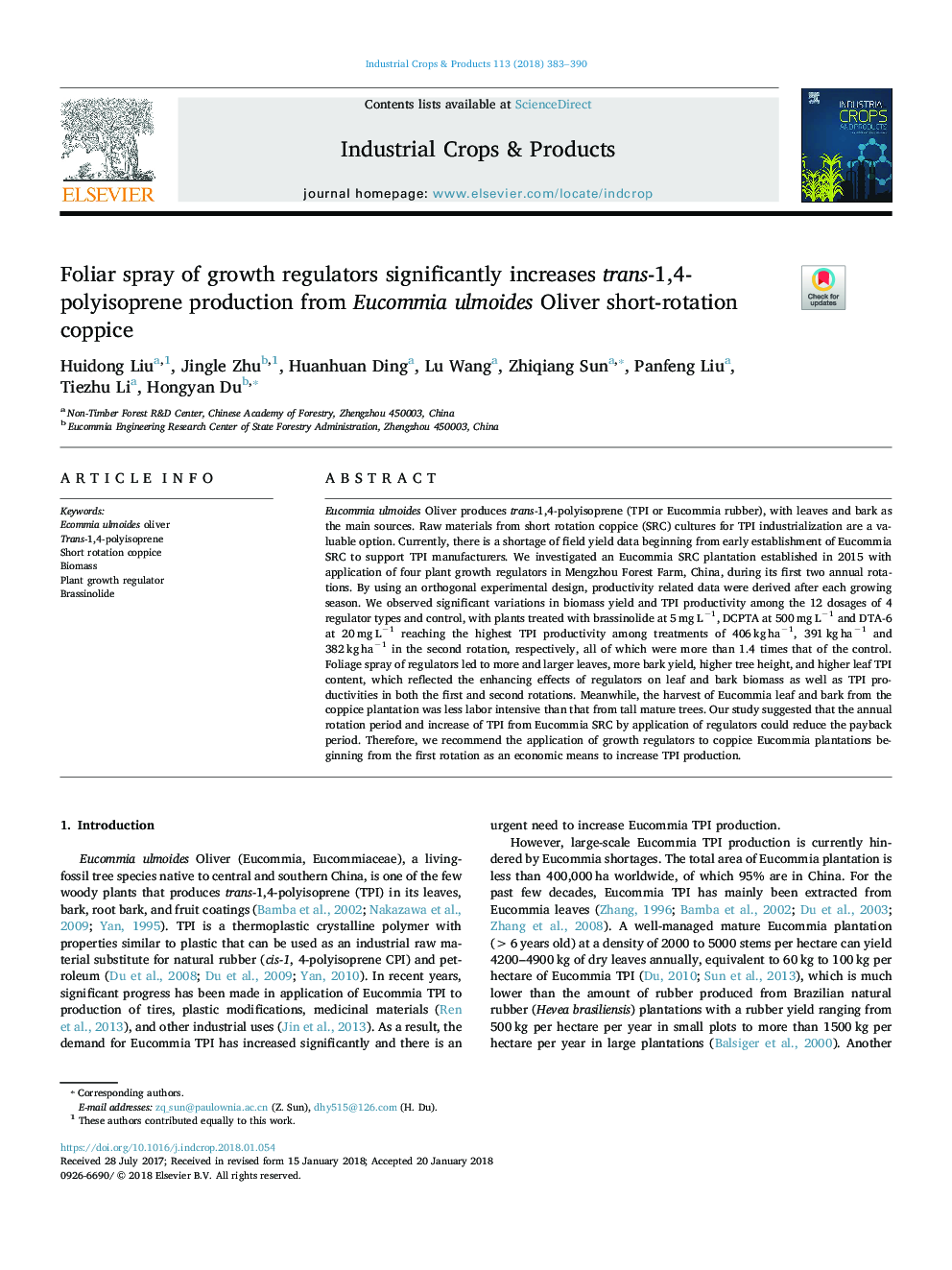| Article ID | Journal | Published Year | Pages | File Type |
|---|---|---|---|---|
| 8880482 | Industrial Crops and Products | 2018 | 8 Pages |
Abstract
Eucommia ulmoides Oliver produces trans-1,4-polyisoprene (TPI or Eucommia rubber), with leaves and bark as the main sources. Raw materials from short rotation coppice (SRC) cultures for TPI industrialization are a valuable option. Currently, there is a shortage of field yield data beginning from early establishment of Eucommia SRC to support TPI manufacturers. We investigated an Eucommia SRC plantation established in 2015 with application of four plant growth regulators in Mengzhou Forest Farm, China, during its first two annual rotations. By using an orthogonal experimental design, productivity related data were derived after each growing season. We observed significant variations in biomass yield and TPI productivity among the 12 dosages of 4 regulator types and control, with plants treated with brassinolide at 5â¯mgâ¯Lâ1, DCPTA at 500â¯mgâ¯Lâ1 and DTA-6 at 20â¯mgâ¯Lâ1 reaching the highest TPI productivity among treatments of 406â¯kgâ¯haâ1, 391â¯kgâ¯haâ1 and 382â¯kgâ¯haâ1 in the second rotation, respectively, all of which were more than 1.4 times that of the control. Foliage spray of regulators led to more and larger leaves, more bark yield, higher tree height, and higher leaf TPI content, which reflected the enhancing effects of regulators on leaf and bark biomass as well as TPI productivities in both the first and second rotations. Meanwhile, the harvest of Eucommia leaf and bark from the coppice plantation was less labor intensive than that from tall mature trees. Our study suggested that the annual rotation period and increase of TPI from Eucommia SRC by application of regulators could reduce the payback period. Therefore, we recommend the application of growth regulators to coppice Eucommia plantations beginning from the first rotation as an economic means to increase TPI production.
Related Topics
Life Sciences
Agricultural and Biological Sciences
Agronomy and Crop Science
Authors
Huidong Liu, Jingle Zhu, Huanhuan Ding, Lu Wang, Zhiqiang Sun, Panfeng Liu, Tiezhu Li, Hongyan Du,
